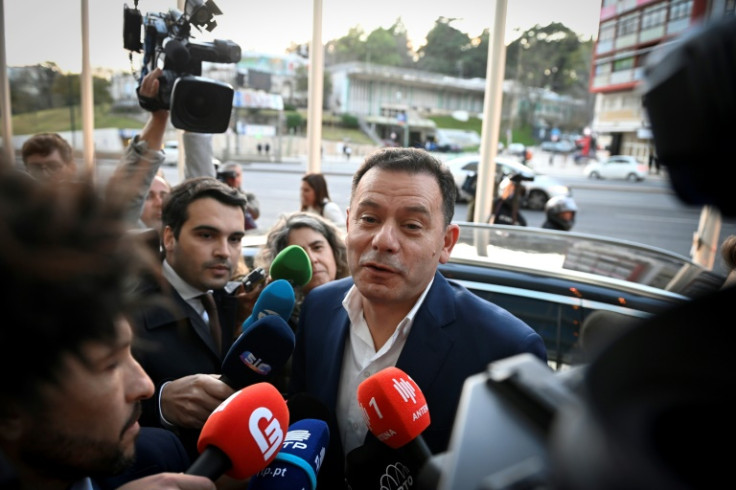
Luis Montenegro, whose centre-right party won Portugal's general election on Sunday according to exit polls, is a seasoned parliamentarian with no government experience who is perceived as honest and competent despite a lack of flair.
Having become leader of the Social-Democratic Party (PSD), the main opposition group, just months after the Socialists won a surprise absolute majority in the last election in January 2022, the 51-year-old lawyer seemed destined to play secondary role in Portuguese politics.
But the surprise resignation of Antonio Costa as prime minister last November in the wake of an influence-peddling scandal thrust the lifelong politician into the forefront.
The PSD dominates the three-party Democratic Alliance that won the most seats in Sunday's early election, capturing 83 to 91 seats in the 230-seat parliament, according to an exit poll for state television RTP.
A deputy since 2002, when he was just 29, Montenegro became leader of the PSD's parliamentary group when it came to power in 2011 under former prime minister Pedro Passos Coelho.
During this time, he backed the implementation of a rigorous fiscal austerity programme negotiated by Portugal with the so-called "troika" of the European Union, European Central Bank and International Monetary Fund in exchange for a financial aid package that averted a bankruptcy during the eurozone debt crisis.
"People's lives haven't improved, but the country is doing better," he said at the time as he defended the unpopular austerity measures.
Pre-election surveys showed that more voters felt Montenegro would be a better premier than his main rival, Socialist party leader Pedro Nuno Santos.
Votes described him as "more honest" and "more competent" than his opponent, the polls found, even though most commentators judged him to lack charisma.
Born in Portugal's second-largest city of Porto, Montenegro grew up in the nearby northern coastal resort of Espinho, where he lives with his wife and two children.
A supporter of the FC Porto football club, he also worked as a summer lifeguard in the town in his youth.
He also became the target of a probe into the tax advantages he enjoyed for building a luxury villa in Espinho that reportedly has eight bathrooms, a vertical garden and an elevator.
Montenegro has denied any wrongdoing.
He was elected a local councillor in Espinho when he was just 24 but lost an election for mayor in 2005, though his national political career has been more successful.
After stepping down as member of parliament in 2018, he was elected head of the PSD in 2022 after failing in a first attempt to win control of the party two years earlier.
While he initially had the support of former PSD premier Passos Coelho, the two men became distanced over how to deal with the surging far-right and populist party Chega.
While Passos Coelho is open to working with Chega, Montenegro has steadfastly rejected any deal with the anti-establishment party that promises to fight corruption, brandishing the slogan "Portugal needs a clean-up".
"No is no," he has repeated throughout the campaign.
Those close to Montenegro say he likes to make decisions on his own and can sometimes be stubborn.
"Power is exercised with a certain discretion and sometimes in great solitude," he once said.







